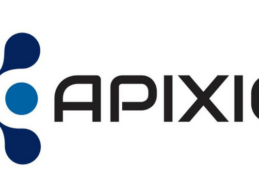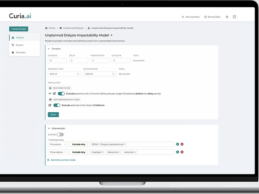What You Should Know:
- Apixio, a leading AI platform that powers value-based care launches its new Apicare Post-Visit™ offering, an EHR-integrated intelligent workflow solution for health plans and providers. With the Centers for Medicare & Medicaid Services' recent Medicare Advantage Risk Adjustment Data Validation Final Rule, healthcare organizations need to have complete diagnosis capture and accurate documentation for reimbursement to ensure compliance.
- The new Post-Visit
Read More
Medicare Insurance| Regulatory, Policy, Patients Analysis, Insights - HIT Consultant
It’s Time to Stop Accepting the Payer-Provider Dynamic as ‘Adversarial’ and Work Toward Alignment
Today’s relationship between payers and providers is more fraught than ever. With a history of transactional, often adversarial, fee-for-service contract negotiations, it’s no wonder that the healthcare industry has grown too comfortable pitting payers and providers against each other.
The lack of trust and transparency between the two groups has led to a perceived misalignment of vision. Across the board, the administrative staff has shouldered the brunt of this friction, which in the end
Read More
Aledade Acquires Curia, Adds More Than 450 New Practices
What You Should Know:
- Aledade today announced the acquisition of Curia, a leader in value-based care analytics using practical applications of artificial intelligence (AI) to optimize the targeting of patient care and engagement programs. The acquisition will enhance Aledade’s ability to extract valuable insights from disparate data sources, provide more accurate predictions using past data, and optimize primary care workflows through cutting-edge AI algorithms.
- In addition, the
Read More
Targeted IT Solutions Ease Navigation and Shift to Value-Based Care
The new healthcare realm of value-based care (VBC), designed to reward healthcare providers with incentive payments for the quality of care and patient outcomes not simply the volume of services provided, presents both opportunities and challenges for all stakeholders. This fundamental shift in reimbursement is intended to become part of the larger quality strategy in reforming how healthcare is delivered and compensated: better care for individuals, better health for populations
Read More
Leveraging Technology to Bridge Gaps in Compliance
American health systems, hospitals and post-acute care providers are required to comply with hundreds of regulatory requirements. Facilitating this compliance comes with a high cost. According to the American Hospital Association, the average-sized community hospital spends nearly $7.6 million annually on administrative activities to support regulatory compliance. With the impending end of the COVID-19 public health emergency set to shake up healthcare regulations, ongoing healthcare labor
Read More
Q/A: Oatmeal Health Co-Founder Talks AI-Enabled Cancer Screening for the Underserved
Today, cancer is the second leading cause of death in the United States. Sadly, cancer disparities exist, with racial/ethnic minority, low-income, and uninsured populations suffering the greatest burden. That’s why routine cancer screening is critical to addressing cancer disparities as they have the potential to greatly reduce both incidence and mortality rates. To address this, Federally qualified health centers (FQHCs) are funded by the Health Resources and Services Administration to provide
Read More
CMS Program Integrity’s Role in Combatting FWA While Maintaining Health Equity
In 2022, the Center for Medicare and Medicaid Services (CMS) established health equity as a pillar of its future work. Program integrity staff from every state Medicaid program, and federal program staff working on Medicare, must consider the roles of both program integrity and analytics when combatting fraud, waste, and abuse (FWA)in the healthcare system.
CMS defines health equity as "the attainment of the highest level of health for all people, where everyone has a fair and just
Read More
Why It’s Time for Intelligent Prior Authorization
The Centers for Medicare & Medicaid Services (CMS) recently proposed a new rule to advance interoperability and improve the prior authorization (PA) process for Medicare and Medicaid patients. Specifically, the rule stipulates that health plans adopt electronic prior authorization processes, adhere to shorter turnaround times, clearly communicate denial reasons, publish key metrics annually, and implement the Fast Healthcare Interoperability Resources (FHIR) Application Programming Interface
Read More
FHIR Adoption and Implementation Challenges
The Fast Healthcare Interoperability Resources (FHIR) standard was introduced by HL7 in 2014 as a significant replacement for the HL7 V2 and V3 standards. An open standard called FHIR, which was initially drafted in 2011 makes it easier than ever for legacy systems and new apps to exchange data. FHIR was created to not only increase communication efficiency and interoperability compared to earlier standards but also to facilitate implementation by giving clear specifications and allowing
Read More
Biden Admin Builds on Cancer Moonshot with 13 More Initiatives
What You Should Know:
- One year ago, President Joe Biden and First Lady Jill Biden reignited the Cancer Moonshot, setting an ambitious, achievable goal: to reduce the death rate from cancer by at least 50 percent over the next 25 years, and improve the experience of people and families living with and surviving cancer, ultimately ending cancer as we know it today.
- The Cancer Moonshot has spurred tremendous action across the federal government and from the public and private
Read More










